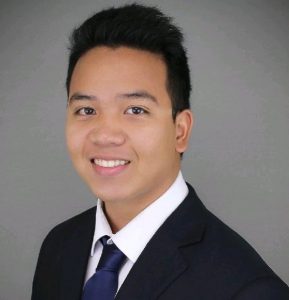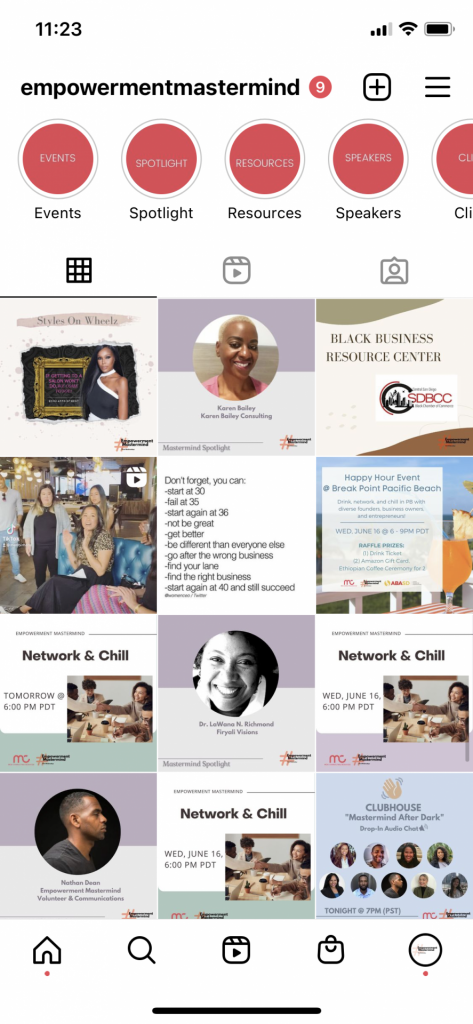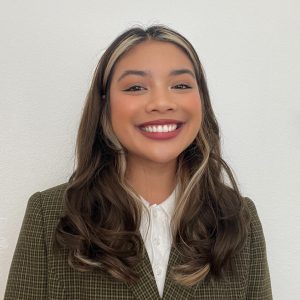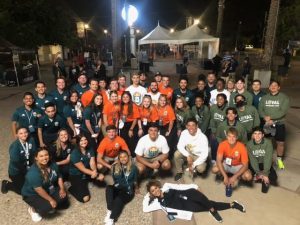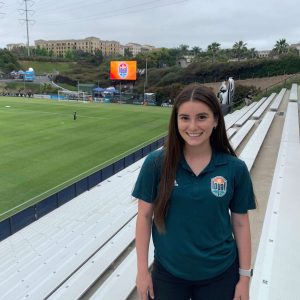The Advancing San Diego (ASD) Internship Program launched in Summer 2020 in a remote-capacity amid the COVID-19 pandemic and aims to provide up to 100 San Diego-based employers with fully subsidized interns. This program targets small employers with 100 employees or less, which comprise 98 percent of all businesses in San Diego, employ nearly two thirds of San Diegans, and account for 70 percent of job growth. A key issue for these companies has been a lack of time and resources to recruit the skilled talent necessary to continue their growth.
As students close out their Spring business internship experiences, EDC has rolled out this blog series to highlight the innovative local companies that comprise the third cohort of the program, and the interns they hosted. To date, ASD has placed 93 student-interns in local businesses, with $455,000 in total wages and support services paid.
In this edition, we sat down with Romi Rossel, Content Marketing Manager at Misadventure & Co., a leading provider of vodka production and sustainability.
Read on for more about ASD intern host Misadventure & Co.

Tell us about your company.
Misadventure & Co. is the world’s first carbon negative distillery, and the first and only to upcycle excess baked goods into an award winning spirit. Our vodka is smooth and upcycled certified. The best part? Consumers get to help save the world just by having a drink! Our tasting room and production facility are located in Vista, and we are known for our delicious craft cocktails, sustainable vodka, and wonderful atmosphere.
Why was your company founded?
It all started in 2013 with a chance meeting at a North County San Diego bar between the two founders. Whit Rigali, the bartender, wanted to create local craft spirits as tools for other bartenders. Sam Chereskin, the Agricultural Economist, wanted to find ways to improve food systems and show that doing good can also be viable. Their conversation over a glass of whiskey led to the creation of Misadventure & Co. Our vodka is not just a product of four years of R&D, but lessons learned through the San Diego brewing and distilling communities, and our wonderful friends and family. We desire to make quality spirits and create them sustainably. With food waste prevention being the number one solution to climate change, we are focusing on educating our community on finding creative ways to help the environment, and choosing products that can help make the world a better place.
What does growth look like over the next few years?
We are excited to further develop both our hospitality and distribution channels. Increasing our production would allow us to make a bigger positive impact on the environment.
How has your company pivoted as a result of COVID-19?
As a result of the pandemic, we expanded our forecasting capabilities beyond traditional weather variables like temperature and relative humidity, as we were involved in a project in collaboration with NASA scientists to understand the effects of COVID-19 in the upcoming forest fire season. Further, Misadventure pivoted into producing hand sanitizer to support the uptick in sanitation needs amid pandemic. That experience not only allowed us to stay in business through 2020, but also opened up a whole different set of possibilities for us. We realized that we are not only a distillery producing high quality spirits, but also a sustainable ethanol manufacturer that can be used in many other industries from food production to cosmetics.
Tell us about your experience building a small business/startup in San Diego.
We have been extremely lucky to work with other amazing organizations and companies that support what we do. San Diego has a very tight sustainable community as well as a great distilling and brewing community that encourages collaboration and assistance. CAL Recycle has been extremely helpful in providing grants to fund pieces of equipment that have helped us increase and improve our production. We also love working with other anti-food waste organizations such as Kitchens for Good and Oceanside Kitchen Collaborative, and we are proud to say we are founding members of the new nonprofit organization Sustainability is Sexy.
The most special thing about the San Diego business community is that is a very collaborative community. There is always a genuine interest from people to help each other and grow together, especially when it comes to making positive changes in the world.
How did you find out ASD and how has your experience been? Tell us a little bit about your interns and the value they bring.
We found out about ASD through a contact at California Manufacturing Technology Consulting (CMTC) who shared the internship opportunity with us. Our interns provided strong support for our marketing campaigns by doing market research that allowed us to grow our social media presence and bring more foot traffic to our tasting room.
Learn more about Advancing San Diego and our internship program.
Company contact info and additional information:
- Website: misadventure.co
- Social Media: @misadventureco
- Email: info@misadventure.co
You might also like to read:

